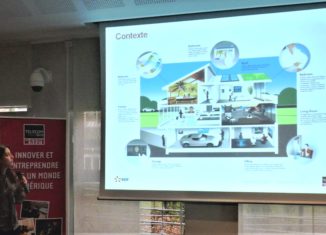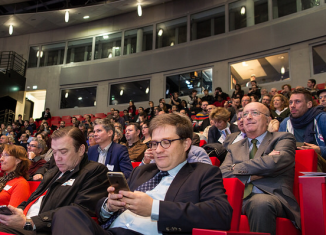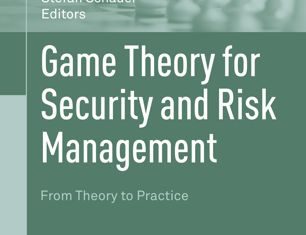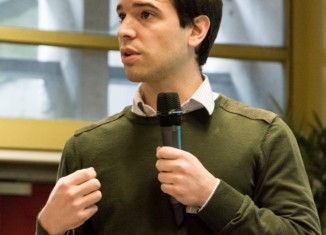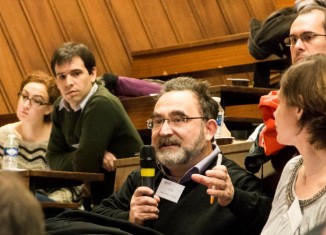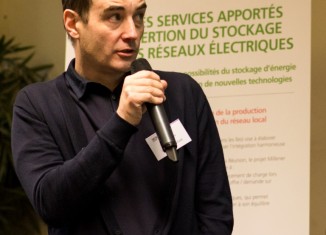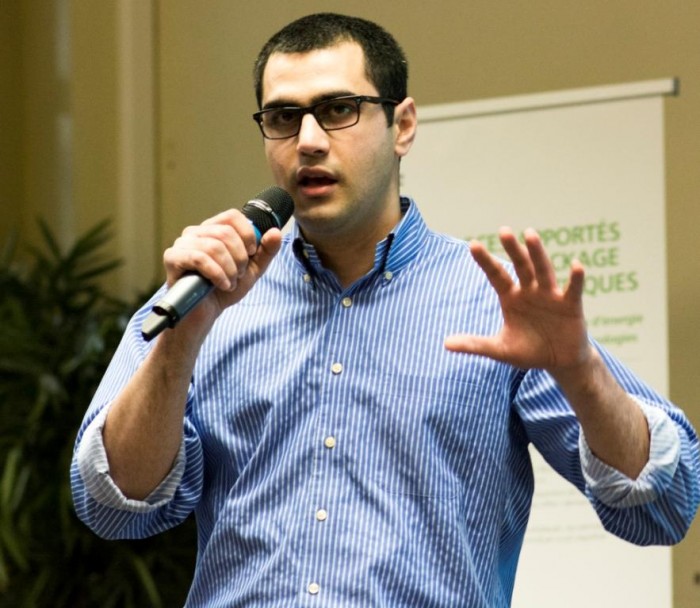Cybersecurity
Managing Security Risks Interdependencies Between ICT and Electric Infrastructures: A Game Theoretical Analysis
Book chapter in Game Theory for Security and Risk Management
Stefan Rass, Stefan Schauer (Editors)
ISBN 978-3-319-75268-6
Abstract: In complex interdependent systems, the interactions between the attacker and the defender play an important role in defining the optimal defense strategy. In this context, game theory offers a mathematical framework to study interactions between different players with the same or conflicting interests. For example, Law et al. [20] investigate false data injection attacks on the power grid and formulate the problem as a stochastic security game between an attacker and a defender. Amin et al. [21] present a framework to assess risks to cyber-physical systems when interdependencies between information and physical systems may result in correlated failures.
In this chapter, we address the issue of the security risk management of interdependent communication and electric infrastructures in the smart grid by proposing an analytical model for hardening security on critical communication equipment used to control the power grid. Using noncooperative game theory, we analyze the behavior of an attacker and a defender. The attacker tries to compromise communication equipment to cause the maximum impact on the power grid. On the other hand, the defender tries to protect the power system by hardening the security on communication equipment, while taking into account the existence of backup control equipment in the communication infrastructure. In [22] and [23], we proposed an analytical model based on game theory for optimizing the distribution of defense resources on communication equipment taking into account the interdependencies between electric and communication infrastructures and defined a methodology to assess some of the parameters of the model. In this chapter, we make a number of extensions to this model in an attempt to answer the following questions: Is security by obscurity a good strategy for the defender? Under which conditions can a player guarantee a certain payoff? How can we strategically assess the initial security risk on communication equipment? Is deception required from the part of the defender to better protect the system? As we will see, while some of these questions can be analyzed analytically in the general case, some answers to these questions are system dependent and will therefore be analyzed in the case study. Throughout this chapter, the communication system refers to the telecommunication infrastructure responsible of controlling and monitoring the electric system.
SEIDO Lab dans un reportage sur France Culture
Réécouter l’émission en totalité ou le reportage à partir de la minute 47′.
Auditing a Cloud Provider’s Compliance With Data Backup Requirements: A Game Theoretical Analysis
Transactions on Information Forensics and Security (IEEE). Pages: 1685-1699, Volume: 11, Issue: 8, , Aug. 2016.
DOI:10.1109/TIFS.2016.2549002
Abstract: The new developments in cloud computing have introduced significant security challenges to guarantee the confidentiality, integrity, and availability of outsourced data. A service level agreement (SLA) is usually signed between the cloud provider (CP) and the customer. For redundancy purposes, it is important to verify the CP’s compliance with data backup requirements in the SLA. There exist a number of security mechanisms to check the integrity and availability of outsourced data. This task can be performed by the customer or be delegated to an independent entity that we will refer to as the verifier. However, checking the availability of data introduces extra costs, which can discourage the customer of performing data verification too often. The interaction between the verifier and the CP can be captured using game theory in order to find an optimal data verification strategy. In this paper, we formulate this problem as a two player non-cooperative game. We consider the case in which each type of data is replicated a number of times, which can depend on a set of parameters including, among others, its size and sensitivity. We analyze the strategies of the CP and the verifier at the Nash equilibrium and derive the expected behavior of both the players. Finally, we validate our model numerically on a case study and explain how we evaluate the parameters in the model.
Soutenance de thèse de Ziad Ismaïl
- Tansu Alpcan, Associate Professor, University of Melbourne (Rapporteur)
- Lin Chen, Maître de conférences, Université Paris-Sud 11 (Invité)
- Isabelle Chrisment, Professeur, Télécom Nancy (Rapporteur)
- Hervé Debar, Professeur, Télécom SudParis (Président)
- Alia Fourati, Ingénieur-Chercheur, EDF R&D (Encadrant industriel)
- Mohamed Kaaniche, Directeur de recherches, LAAS-CNRS (Rapporteur)
- Jean Leneutre, Maître de conférences, Télécom ParisTech (Directeur de thèse)
- Fabio Martinelli, Senior researcher, IIT-CNR (Examinateur)
- Gérard Memmi, Professeur, Télécom ParisTech (Examinateur)
- Arnaud Ulian, Chef du Département MIRE, EDF R&D (Examinateur)
Résume de la thèse
Du fait de l’évolution des menaces, la gestion des risques de sécurité dans le contexte d’un réseau électrique dit intelligent, ou smart grid, représente un défi. Cette thèse traite cette problématique en proposant des solutions basées sur la théorie des jeux non coopérative, les graphes d’attaques et les processus de décision Markovien sous contraintes.
Dans la première partie de cette thèse, nous proposons et résolvons des modèles en théorie des jeux non coopérative pour optimiser le déploiement des ressources de défense dans le smart grid. Nous identifions le choix optimal des modes de sécurité sur les équipements d’une infrastructure relative aux compteurs intelligents, ou Advanced Metering Infrastructure (AMI), permettant de protéger la confidentialité des données clients. En outre, nous présentons un modèle analytique permettant d’identifier et de renforcer les équipements de communication les plus sensibles du réseau électrique.
Afin d’améliorer la sécurité des systèmes de contrôle industriel, la stratégie de défense a besoin d’être à la fois proactive, en anticipant les cibles potentielles des attaquants, et réactive en ajustant le type et l’intensité de la réponse en fonction du niveau de la menace. Dans la deuxième partie de la thèse, nous abordons ce défi et présentons une solution qui calcule la politique de sécurité optimale garantissant que les objectifs du défenseur sont satisfaits. Cette politique est obtenue par la résolution d’un processus de décision Markovien sous contraintes construit à partir d’un graphe d’attaque généré préalablement et représentant l’évolution de l’état de l’attaquant dans le système.

